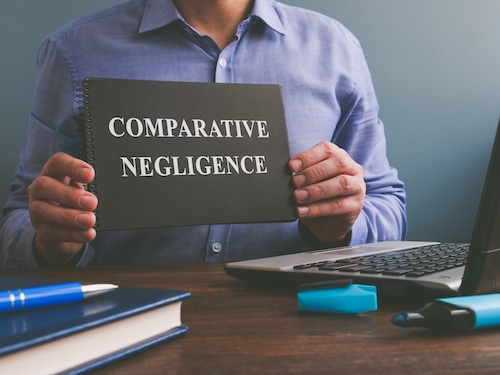What Happens If You Lie to Insurance Company About Accident
At Atlanta Metro Law, we are committed to standing up for accident victims across Georgia. Our firm focuses on car accident cases, guiding clients through insurance claims, personal injury claims, and the legal process with precision and care. We know how insurance companies operate, and we work to protect your rights while pursuing the fair compensation you need to recover. With our experience and dedication, we provide strong representation and clear advice every step of the way.
Lying to an insurance company after a car accident may seem like a way to protect yourself, but it often leads to serious consequences. Insurance adjusters compare accident scene evidence, police reports, medical records, and witness statements to uncover the truth. If false information is discovered, drivers face claim denial, policy cancellation, higher insurance rates, and even criminal charges under Georgia law. Understanding what happens if you lie to insurance company about accident can help you avoid these risks and protect your right to fair compensation with the help of an experienced car accident attorney.
In this blog, you will learn what happens if you lie to insurance company about accident, the legal and financial risks under Georgia law, and why working with an experienced Atlanta car accident lawyer is the best way to protect your rights and pursue fair compensation.
Why Honesty Matters After a Car Accident
Being truthful after a car accident is not optional. It protects your insurance claim, your credibility, and your legal rights.
Accurate Information Builds Trust
Insurance companies rely on facts from the accident scene, the police report, and witness statements. When drivers provide false information, insurance adjusters quickly notice inconsistencies. Photos of vehicle damage, security cameras, and eyewitness testimony often reveal what really happened. Lying at this stage damages trust with the insurer and weakens your position in a car accident case.
False Statements Lead to Claim Denial
If a driver gives inaccurate details about how the accident occurred, the insurance company may deny the claim. A claim denial means no coverage for medical records, property damage, or fair compensation. Once caught lying, a driver risks losing insurance coverage and facing higher insurance rates for years.
Honesty Protects Legal Rights
Providing truthful details ensures your car accident attorney has the right evidence to pursue fair settlement. If the insurer or the other driver accuses you of lying, an experienced car accident attorney can point to available evidence such as medical attention records, physical evidence, and collected witness testimony. This honest foundation strengthens personal injury claims and prevents legal consequences later.
Georgia Law on Insurance Fraud
Lying to an insurance company about an accident in Georgia is not just risky, it can be a crime.
Definition of Insurance Fraud
Under Georgia law, providing false information to an insurance company is considered insurance fraud. This includes lying about how the accident occurred, exaggerating injuries, or misrepresenting vehicle damage. Any attempt to deceive the insurer during an insurance claim can trigger an investigation.
Georgia Statute O.C.G.A. § 33-1-9
The controlling law is O.C.G.A. § 33-1-9, which makes it unlawful to present false or misleading information with intent to defraud an insurer. A person caught lying to an insurance company may face felony charges, fines, restitution, and possible prison time. Criminal penalties increase if the false statement is tied to a personal injury claim or large insurance coverage payout.
Examples of Fraudulent Acts
Insurance fraud can occur in many forms after a car crash. A driver may claim another party was at fault when evidence shows otherwise. Some drivers create or inflate medical records to show injuries that never required medical attention. Others alter details in the police report or ignore physical evidence at the accident scene. Each of these acts exposes the driver to serious consequences under Georgia law.
Civil & Insurance Consequences
Lying to an insurance company about an accident does not just risk criminal charges, it also creates serious financial and legal problems.
Claim Denial
If an insurer discovers false information in an insurance claim, the most immediate result is claim denial. This leaves the driver without coverage for medical records, vehicle damage, or other accident costs. Once the claim is denied, the driver may have to pay out of pocket for injuries and property damage.
Policy Cancellation and Higher Rates
An insurance company can cancel a policy if the driver is caught lying. Even if coverage is not canceled, insurance rates can increase sharply. The driver becomes a high-risk policyholder, and future insurance coverage may be harder to obtain.
Loss of Compensation Rights
False information weakens the driver’s ability to recover fair settlement in a personal injury case. If the other driver’s insurance company proves dishonesty, it can block payment for medical attention, lost wages, or other personal injury claims. This makes it difficult to obtain fair compensation for what actually happened at the accident scene.
Civil Liability
Providing false information may also expose the driver to civil lawsuits. The other party may sue to recover damages if the insurer refuses to pay. This creates long-term financial risks, especially when serious injuries or major vehicle damage are involved.
How Lies Get Discovered
Insurance companies have many tools to uncover false information after a car accident.
Accident Scene Evidence
Investigators review the accident scene for physical evidence. Photos of vehicle damage, broken glass, and skid marks often tell the real story. Security cameras from nearby businesses or traffic lights can also show what happened. This evidence quickly exposes a false claim.
Police Reports and Witness Statements
Police reports provide an official record of the crash. If a driver’s version of events conflicts with what is written in the report, the insurance company will investigate further. Witness statements add another layer of proof, and insurers compare these accounts against the driver’s claim.
Medical Records and Treatment
False claims about injuries are often revealed through medical records. Insurance adjusters check whether medical attention matches the severity of the accident. If treatment does not support the injury described, the claim becomes suspicious.
Insurance Company Investigations
Insurance adjusters are trained to spot inconsistencies. They compare the driver’s story with available evidence, including eyewitness testimony, physical damage, and reports from the other party. When facts do not align, the insurance company refuses to pay and may report the matter as insurance fraud.
Legal Consequences Beyond Insurance
Lying to an insurance company about an accident creates exposure to penalties that extend past denied claims and policy cancellations.
Criminal Penalties
Providing false information in an insurance claim can trigger criminal charges under Georgia law. A driver caught lying may face felony charges, heavy fines, restitution, and time in prison. These criminal penalties increase in cases involving serious personal injury claims or large payouts.
Civil Lawsuits
The other party or the other driver’s insurance company may sue if dishonesty prevents a fair settlement. Civil liability can force the driver to pay damages directly. This risk becomes greater when the accident caused significant injuries or property damage.
Loss of Credibility
A driver caught lying loses credibility in court and with insurance adjusters. Once credibility is gone, it is difficult to obtain fair compensation in future personal injury claims. Judges and juries give less weight to testimony from a person who was already proven dishonest.
Long-Term Consequences
Dishonesty after a car crash damages more than one claim. Insurance companies may cancel coverage, increase insurance rates, or refuse future coverage. The driver may also face lasting financial and legal consequences that extend far beyond the original accident.
What to Do if You’ve Been Accused of Lying
Being accused of lying to an insurance company after a car accident can feel overwhelming, but there are clear steps to protect yourself.
Stop Giving Statements
Do not provide further details to the insurance company once the accusation is made. Insurance adjusters may use your words against you. Wait until you have spoken with a car accident attorney before responding.
Gather Evidence
Collect all available evidence from the accident scene. This includes police reports, medical records, vehicle damage photos, and witness statements. Physical evidence such as broken glass or security camera footage can help prove what actually happened.
Seek Medical Attention
If you are injured, get prompt medical attention. Delays in treatment can create suspicion in personal injury claims. Medical records showing consistent care are strong evidence that supports your case.
Contact a Car Accident Attorney
An experienced car accident attorney can guide you through the process and defend you against allegations of insurance fraud. Your attorney will review the insurance claim, compare it with the available evidence, and build a strategy to protect your rights. Many offer a free consultation to help you understand your legal options.
Contact an Experienced Atlanta Car Accident Attorney ASAP!
If you have been involved in a car accident and face challenges with an insurance claim, do not risk handling it alone. Reach out to our team at Atlanta Metro Law today to speak with an experienced car accident attorney. We are ready to review your case, explain your legal options, and fight for the fair compensation you deserve.
Contact us at 864-894-2045 for a free case consultation today!







